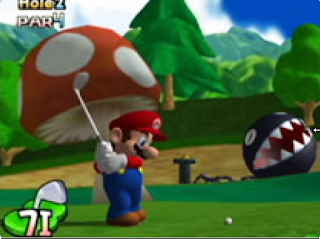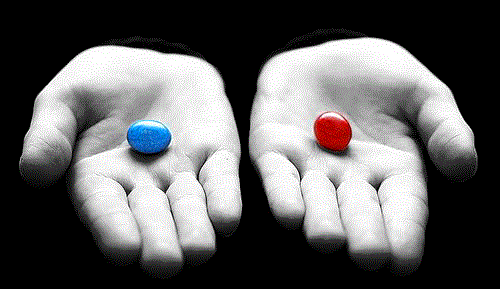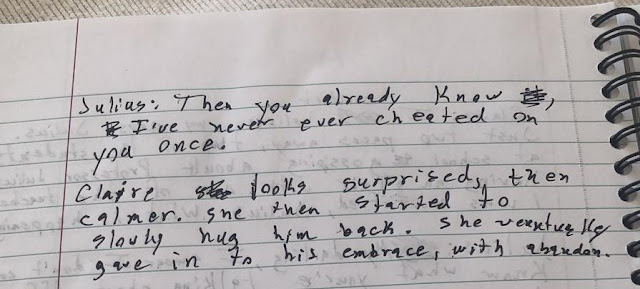Somewhere in January, 2020
We no longer want to figure out the question. Right now, all we want is answers.
Uno.
A.
I forgot about the
runny-nose and the overall flu-like symptoms. Figured I should attend more
live soccer matches (and be alive while at it).
Dos.
The problem is the modern overabundance of sensory satisfactions, a scenario we have not yet had time to
adapt to. We are built for resource optimization, as we have faced their
life-threatening scarcity for the majority of our existence. This is because we now live firmly
in the world of want, not of need.
Cannot forget that any
victories against weather (ability to freeze food, canning, irrigation,
lighting) are temporary. In the end, if it doesn't eventually rain we're all
fucked. Stability can't remain stable for long.
B.
And thus Mario took the
mushrooms and left reality for 6 hours. He was living in a world with many
lives, stages, continues, princesses, coins, and turtles. He slowly crawled
back, but he'd never be the same again. He saw enough to know it was always
nothing but a game with lives, stages, and continues. It was the world of short
term rewards, very different from Mario's current reality.
What do you want as your
long-term reward? A happy kid who doesn't love you? A somewhat healthy, wealthy
retirement to wear stupid light-colored pants while hitting a tiny white ball
around a field with your surviving buddies? A participation trophy?
Did you end up craving
exactly what you rejected throughout your whole life?
Tres.
The old Fish asked the
young Fish he just encountered - "How's the water?". The younger Fish
looked at him, confused. Then asked back - "What's water?". The most
crucial and essential realities can be the hardest to see and understand.
"It's all banal
platitudes" - The Octopus.
Bestowed with the
capacity to think, we are now burdened with the choice of what to think about.
The thought chooses you first.
C.
Deliberately making
yourself sick to get a bit closer to a state of divinity, risking ending an
already fragile existence before its "due time", may be one of the
few exercises in free will we are left with. Is it worth trying once in a
while?
The proverbial red pill doesn't make you sick. You just see and feel what you've been too numb to notice, to comfortable to accept. You've been sick the whole time, but didn't know it.
Also beyond our reach is the knowledge of just how fucking sick we've
been all this time. The simulation is real, but so entrenched in us and intertwined with our identity that you can yell about it to our face and we
will still pay $13.50 to see the concept turned into a movie instead of doing anything about it. Is power in the form of a
juicy, bloody rib-eye steak worth slaving for? No. But we still chose the blue one instead because losing our reality is too much for our minds to handle, and because we
already had it and learned to call it life. We can no longer afford to lose what we have decided makes us who we are.
D.
One of the worst ambiance sounds must be the one a gas-powered hedge trimmer makes. Would it be so bad to let plants grow as they please? Why do we need to control everything? We spend so much time and effort leveling the ground, keeping shrubberies even, removing any foreign particles from our glasses, plates, food and drinks... only to then go on vacation to places with uneven surfaces everywhere, where the water is wild and considered clean, and where plants do whatever they want, where they want, when they want.
Why do we need to keep
killing the very things we end up craving? Every year we make more humans, and
every year we pay more and more money to find and visit uncrowded spots on vacation,
away from our own creation. We are god and we are the devil, while also the
mortals that have to deal with the consequences of our celestial decisions.
Humanity's main product is still shit in both a figurative
and literal sense.
The leaf-blower effect:
One could achieve the same in a cheaper and less noisy manner, but one wants it
to be easier and faster. Thus, we sacrifice what is good about life in favor of
convenience.
Cuatro.
Independent of our
relationship status, it is human nature to spend a lifetime running from those
who love us, in order to be able to chase those that reject us. In dismissing
us, the latter confirm that they probably own something valuable (superior
genetic material, material possessions, better social status... ). Since they
are chasing us, the former probably carry impairing liabilities (disease, social awkwardness, poverty... ). Life would be a bit simpler if we knew this
instead of acting on it instinctively.
Truly introspective people do not go to war nor work in
construction, a constant problem to the survival of our species in the way we are used to thinking of it.







